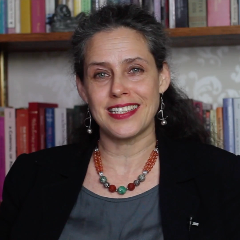You are not currently logged in. Please create an account or log in to view the full course.
The Social Scientific Study of Religion
- About
- Transcript
- Cite
Émile Durkheim on Religion
In this course, Professor Sondra Hausner (University of Oxford) explores Émile Durkheim’s writings about religion. In the first lecture, we introduce some key underpinnings of Durkheim’s work, such as his emphasis on the scientific method, his primary interest in understanding how societies cohere, and his definition of religion. In the second lecture, we consider a key aspect of that definition – that religion comprises beliefs and practices “relative to sacred things” – as well as Durkheim’s understanding of the distinction between the sacred and profane. Next, we think about “collective effervescence”, a concept Durkheim developed to explain how religious practices are essential to the formation of social groups. In the fourth and final lecture, we conclude with a discussion of Durkheim’s idea of the “moral community” as a central element to his definition of both religion and society.
The Social Scientific Study of Religion
In this lecture, we introduce some of the core premises of Émile Durkheim’s approach to religion, focusing in particular on: (i) Durkheim’s emphasis on the use of scientific method in the study of society; (ii) his understanding of societies as coherent, organised units, rather than merely collections of individuals, and his central interest in uncovering how social groups come together and sustain themselves over time; (iii) his work The Elementary Forms of Religious Life (1912), in which he argued that it was religion which enabled individuals to come together in this way; (iv) Durkheim’s definition of religion.
Cite this Lecture
APA style
Hausner, S. (2022, February 15). Émile Durkheim on Religion - The Social Scientific Study of Religion [Video]. MASSOLIT. https://massolit.io/courses/emile-durkheim-on-religion/the-relationship-between-the-sacred-and-the-profane
MLA style
Hausner, S. "Émile Durkheim on Religion – The Social Scientific Study of Religion." MASSOLIT, uploaded by MASSOLIT, 15 Feb 2022, https://massolit.io/courses/emile-durkheim-on-religion/the-relationship-between-the-sacred-and-the-profane

